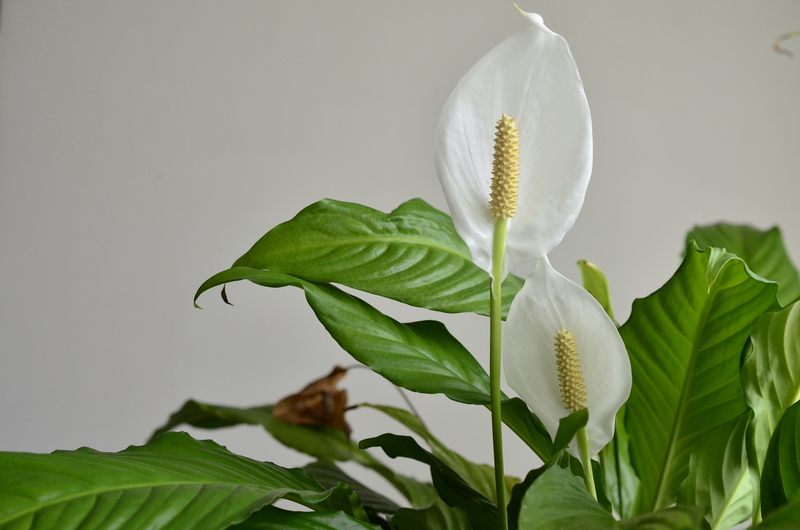Find Tranquility in Your Garden with Zen-inspired Ideas
Posted on 12/09/2025
Find Tranquility in Your Garden with Zen-Inspired Ideas
Discover how to find tranquility in your garden with Zen-inspired ideas that bring calm, beauty, and mindfulness to your outdoor space. Whether you have a small backyard, a sprawling landscape, or a compact balcony, incorporating Zen garden design can transform your environment into a serene retreat for relaxation and meditation.
Understanding Zen Gardens: A Journey Towards Tranquility
Zen gardens, also known as kare-sansui or dry landscape gardens, originated in Japan in the 14th century. These gardens are designed to evoke peace, introspection, and a deep connection with nature. Zen-inspired gardens use carefully placed rocks, raked gravel or sand, minimalist plantings, and water elements to encourage a tranquil atmosphere.
- Minimalism: Less is more in Zen design. Every item has a purpose and meaning.
- Natural elements: Stone, wood, sand, and water create harmony and balance.
- Simplicity: Uncluttered layouts foster clear thoughts and a calm mind.
- Symbolism: Each component, from a stone lantern to a raked gravel pattern, tells a story.

Zen-Inspired Garden Ideas to Create a Peaceful Retreat
If you yearn to achieve tranquility in your garden, adopting Zen-inspired landscaping can be transformative. Explore the techniques and ideas below for designing your personal oasis.
1. Start with a Mindset of Simplicity
The philosophy of Zen centers on removing distractions and focusing on essentials. Choose a focal point, such as a stone arrangement, water feature, or a simple tree, then build the layout around it.
- Edit your space: Remove overcrowded plants and unnecessary decorations.
- Highlight natural shapes: Use the unique forms of rocks, trees, and shrubs.
- Balance: Apply asymmetry, which is pleasing to the eye and evokes the organic feel of nature.
2. Integrate Natural Elements and Materials
Natural elements are fundamental in Zen-inspired garden design. Choose materials that blend seamlessly with the environment. Incorporate rocks, pebbles, sand, bamboo, and reclaimed wood for a harmonious effect.
- Stone arrangements: Use stones to represent mountains or islands, symbolizing stability and permanence.
- Sand and gravel: Rake sand or gravel into patterns to represent water or waves, encouraging meditation.
- Bamboo screens or fences: Provide privacy and add an unmistakable Asian touch.
- Natural pathways: Use stepping stones or irregular paths to slow your pace and promote mindfulness.
3. Add Water for Calm and Reflection
Water is a vital component for creating tranquility in your garden. The sound of water soothes the senses and encourages introspection.
- Ponds: Even a small pond adds depth and motion.
- Simple fountains: Create a gentle trickle rather than a splashy noise.
- Reflecting pools: Encourage contemplation by mirroring sky and foliage.
If a water feature isn't feasible, use raked sand or gravel as a symbolic representation of rivers and streams, maintaining Zen-inspired tranquility without extra maintenance.
4. Mindful Plant Selection
Select plants that support the peaceful aura of a Zen garden. Opt for modest colors, simple foliage, and slow-growing species.
- Moss: Offers a soft, green carpet effect, ideal for damp, shaded areas.
- Bamboo: Brings height and rhythmic sound as it sways in the breeze.
- Japanese maples: Their delicate leaves and graceful structure symbolize peace.
- Evergreens: Provide year-round color and structure.
5. Incorporate Symbolic Features
Traditionally, Zen gardens contain several symbolic elements that encourage quiet contemplation and spiritual balance:
- Stone lanterns (Toro): Represent enlightenment and illuminate at dusk.
- Bridges: Symbolize the journey of life or passage to enlightenment.
- Bonsai: These miniature trees reflect patience and discipline.
- Pagodas: Small decorative structures that evoke traditional Japanese temples.
Create Zones for Meditation and Relaxation
To find tranquility in your outdoor space, designate specific zones for mindfulness. Consider these ideas:
- Meditation platforms: Use a wooden deck or stone slab as a place to sit or practice yoga.
- Reading nooks: Place a simple bench or chair beside a calming focal point, such as a pond or lantern.
- Stepping stone paths: Gently guide visitors through the garden, slowing their movement and thoughts.
6. Embrace Asymmetry and Imperfection
Zen philosophy celebrates the beauty of imperfection (wabi-sabi). Avoid rigid symmetry; instead, embrace asymmetrical design and natural wear.
- Arrange stones and features in odd numbers and uneven spacing.
- Let moss grow over rocks and in crevices.
- Select materials that age gracefully, like weathered wood or oxidized copper.
7. Use Lighting to Enhance Serenity
Soft, subtle lighting extends the tranquil effects of your garden into the evening.
- Lanterns: Place stone or wooden lanterns at key points.
- Path lighting: Use low, warm lights to softly illuminate walkways.
- Understated spotlights: Highlight trees, water, or art without overwhelming the natural beauty.
8. Choose Harmonious Colors
Zen-inspired garden ideas favor understated, restful colors. Focus on varied shades of green, gray, brown, and muted floral hues. Strong contrasts are minimal to keep the mood calm and unified.
- Greens: Different textures and tones create visual interest.
- Grays and earth tones: Stones, sand, and wood maintain a neutral base.
- Subtle splashes of color: Use delicate blooms like camellias or azaleas sparingly.
Benefits of a Zen-Inspired Garden Sanctuary
Transforming your garden into a Zen-inspired retreat offers numerous benefits beyond aesthetics:
- Mental Wellness: Regular exposure to tranquil green spaces reduces stress, anxiety, and promotes emotional balance.
- Mindfulness Practice: Zen gardens encourage stillness, meditation, and time for self-reflection.
- Low Maintenance: Minimalist plantings and hardscapes mean less upkeep than traditional gardens.
- Connection with Nature: Even a small Zen garden can deepen your appreciation for natural beauty and the passage of seasons.
- Year-Round Beauty: Carefully chosen evergreens, stones, and architectural elements are attractive in every season.
Tips for Maintaining a Tranquil Zen Garden
Once you've implemented Zen-inspired ideas in your garden, keep things peaceful with thoughtful maintenance routines:
- Rake sand or gravel regularly: The act itself is meditative and keeps patterns crisp.
- Trim plants judiciously: Maintain clean lines and prevent overgrowth that disrupts the minimalist feel.
- Clean water features: Prevent algae and ensure pumps are working quietly.
- Remove fallen leaves and debris promptly: Keep the space uncluttered and visually restful.
- Inspect structures: Repair any worn wood or stone features to preserve the garden's integrity.
Simple DIY Projects for Zen Garden Tranquility
Ready to begin finding tranquility in your outdoor space? Try these Zen-inspired, budget-friendly projects:
- Mini Zen Sand Tray: Use a shallow tray, fine sand, and a few stones. Rake patterns when you need a moment of calm indoors or out.
- Bamboo Water Feature: Create a shishi-odoshi, a simple pivoting bamboo water spout that adds meditative sound and movement.
- Stone Path: Lay stepping stones or gravel in a winding pattern to slow your walk and increase mindfulness.
- Potted Zen Corners: Arrange a few pots with moss, ferns, or a dwarf maple for an instant peaceful vignette--even on a balcony.

Frequently Asked Questions About Zen Gardens
What is the purpose of a Zen garden?
Zen gardens are designed to inspire tranquility, mindfulness, and contemplation. Traditionally, they serve as spaces for meditation and self-reflection, helping individuals find clarity and peace.
Can Zen garden ideas be used in small spaces?
Absolutely! Find tranquility in small gardens by using container gardens, mini sand trays, and carefully selected features. Focus on simplicity and balance over size.
Which plants are best for a Zen-inspired garden?
Choose evergreens, moss, bamboo, Japanese maples, ferns, and small flowering shrubs like azaleas or camellias. Prioritize plants with subtle colors and simple forms.
How do I add tranquility to my garden on a budget?
Use local stones and gravel, repurpose reclaimed wood, and start with simple projects like a raked sand tray. Minimalism, a key feature in Zen gardens, naturally keeps costs low.
Conclusion: Embrace Zen and Find Lasting Tranquility in Your Garden
By integrating Zen-inspired ideas into your garden, you craft more than a visually appealing space--you create a sanctuary for peace, relaxation, and renewal. Whether it's through a sculpted sand pattern, gentle trickle of water, or thoughtfully arranged stones, a Zen-inspired garden helps you connect with nature and rediscover calm amidst the rush of daily life.
Start small, experiment with mindful design, and let each addition serve as a step toward deeper tranquility. Your garden can become a true refuge for body, mind, and spirit.
Latest Posts
Eco-Friendly Solutions: Organic Waste to Soil
Elevate Your Landscape with Artistic Hedge Trimming
5 Practical Ways to Achieve a Budget-Friendly, Low Maintenance Garden
Find Tranquility in Your Garden with Zen-inspired Ideas
Flourish with Ease: 9 Fundamental Gardening Tips for Starters



